Bodybuilding is hard work. Not only do you have to push yourself in the gym, but you also need to pay attention to what you eat and make sure you’re getting plenty of rest and sleep, too.
Building muscle is a full-time job!
Of course, there are people with incredible genetics who can just look at a barbell and grow, even if they do everything else wrong. However, folks like that are very few and far between.
The rest of us have to take a far more purposeful approach to training and nutrition, fighting for every pound of muscle we gain.
Unfortunately, despite your best efforts, you may still be unhappy with your progress. You could even be struggling to build any muscle at all.
So, what’s the problem?
The truth is that you may be sabotaging your progress by making one or more of the following bodybuilding mistakes. Each one could be enough to stop you from building bigger muscles.
So, check this list and make sure you aren’t inadvertently shooting yourself in the foot. Fix these mistakes, and you’ll take the brakes off and start seeing the gains you deserve.
-
The Top Bodybuilding Mistakes Killing Your Gains
- 1. You’re not following a bodybuilding program
- 2. You are a program butterfly
- 3. You don’t change your workouts often enough
- 4. You’re ignoring the need for progression
- 5. Your form sucks
- 6. You are training too long or often
- 7. Your diet is rubbish
- 8. You’re not getting enough sleep
- 9. Training without occasional breaks
- 10. You are ignoring your injuries
- 11. Doing too much cardio
- 12. You’re on a perma-bulk
- Bodybuilding Mistakes Wrapping Up
The Top Bodybuilding Mistakes Killing Your Gains
Are you fed up with your lack of progress? Take an honest look at what you do in and out of the gym, and then apply the recommended fixes to get back on the gainz train!
1. You’re not following a bodybuilding program
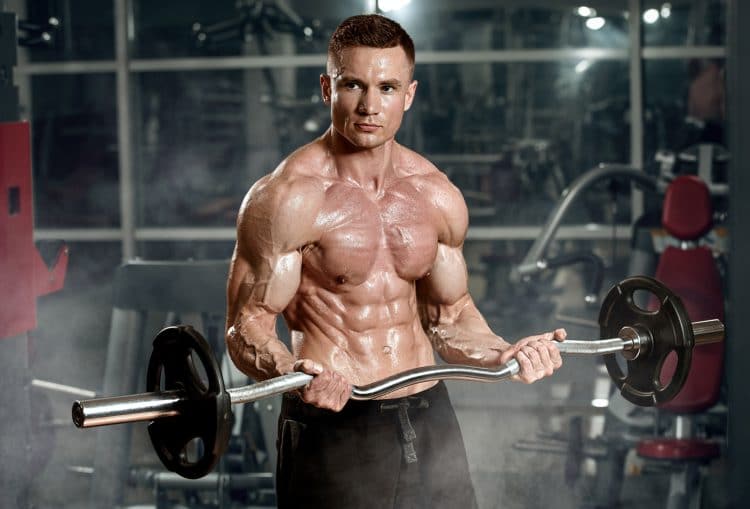
A lot of lifters make up their workouts on the fly. They arrive at the gym and say, “okay, so I guess I’ll train chest today,” or just do whatever workout their training buddy is doing.
This is a HUGE mistake!
Trying to build muscle without a program is like going on a long journey without a map. You MAY reach your destination, but if you do, it’ll take longer than it should, and you’ll be relying more on luck than judgment.
Whether you write your own bodybuilding program or use one of the hundreds of workouts here on Fitness Volt, following a well-designed workout plan will ensure that you get the most from your gym time.
2. You are a program butterfly
A program butterfly is someone who jumps from workout to workout and never stays with the same plan for more than a couple of weeks. More often than not, program butterflies love reading about training and can’t wait to try the latest workout they’ve discovered.
While such enthusiasm is to be applauded, it could also be why you aren’t making any progress.
That’s because it takes time for any program to start producing results. So, if you keep flitting from program to program, your body won’t get the time it needs to adapt to your workout and grow.
The Fix: Pick a program and then stick to it for 8-12 weeks. Continue for as long as you’re making progress. Then, as your growth starts to slow down, pick another program and follow it for another 8-12 weeks.
3. You don’t change your workouts often enough
The lifter making this mistake is the opposite of the program butterfly. They’re virtually married to their workout program and refuse to do anything different; ‘till death do us part!
Having a workout program is a GOOD THING, but your body will eventually get bored of even the best training plan. Once adaptation has occurred, doing the same workouts over and over will lead to a progress plateau, and your gains will grind to a halt.
The Fix: While it’s okay to have a favorite workout that you come back to time and time again, make sure you break things up with some different training programs. And remember, if you aren’t making progress, doing more of the same won’t help. You need to do something new to kick you out of your training rut.
4. You’re ignoring the need for progression
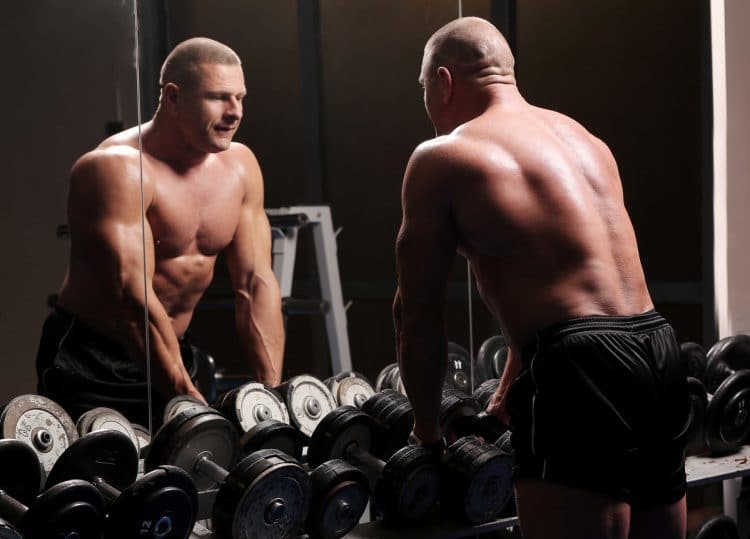
Even the best program will stop working if it isn’t progressive. Your body is a master of adaptation, and your muscles will only grow if you challenge them to do so. That means you need to train harder this week than you did last week and harder still next week.
This doesn’t mean changing your workout every week (see point #2), but you do need to gradually increase the intensity of your workouts.
Easy to implement progression options include:
- Increase your training weights
- Do more reps per set
- Do more sets of each exercise
- Take less rest between sets
- Decrease your rep speed to increase time under tension
- Use a bodybuilding training system
All of these methods will make your workouts more demanding, leading to continued progress.
The Fix: Without changing exercises, look for ways to make your training harder from one week to the next. Squeezing out one more rep, lifting an extra 2.5 pounds, or resting ten seconds less between sets will ensure you keep making progress.
5. Your form sucks
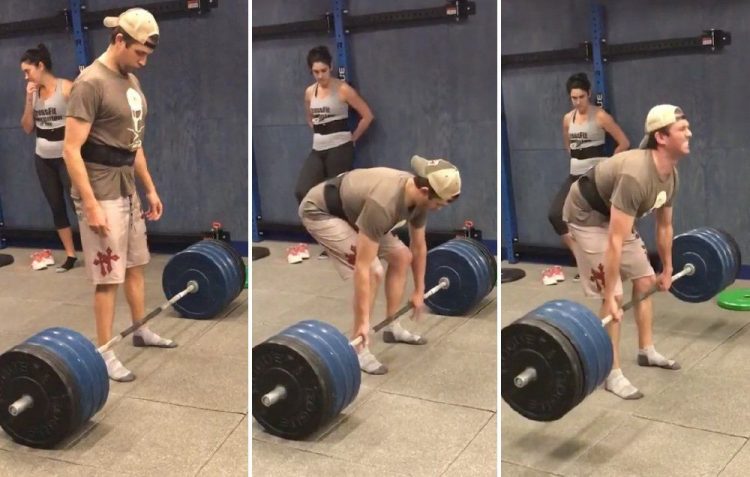
Broadly speaking, there are two ways to do any exercise – the right way and the wrong way. The right way engages the target muscle, keeps stress off your joints, and is less likely to cause injuries. The wrong way may allow you to lift more weight or do more reps, but it often takes tension off the muscle you’re trying to work and could cause injuries.
Always do the exercises in the workout the right way!
Poor workout form is caused by using too much weight, doing your reps too fast, or just lack of knowledge. Whatever the cause, using stricter exercise form can make a significant impact on your progress while reducing your risk of injury; a great twofer!
6. You are training too long or often
Bodybuilding is a form of stress, and your body can only tolerate so much before exhaustion sets in. Training too long or too often will undermine your progress and could even lead to lost strength and muscle mass.
Many pros and elite bodybuilders thrive on marathon workouts and can train every day and still make progress.
However, they’re not only genetically blessed, but many are also taking performance-enhancing drugs (PEDS) such as anabolic/androgenic steroids (AAS). PEDS increase protein synthesis so you can recover faster than usual, increasing your tolerance to long/frequent workouts.
7. Your diet is rubbish

Intense bodybuilding workouts take a lot out of your body. They cause microtrauma to your muscles and deplete your energy. In fact, bodybuilding is a catabolic event!
However, it’s this breakdown and depletion that provide the trigger for hypertrophy or muscle growth.
Your body responds to your workouts by getting stronger and increasing muscle size. It’s a form of self-preservation and not unlike an immunological reaction.
But, building muscle requires nutrients and energy, so you MUST eat to support muscle growth. That means consuming adequate calories, plenty of the right macros, and enough vitamins, minerals, and fiber, too.
Think of the food you eat as the building blocks of muscle growth. In short, if your diet sucks, your body won’t have the materials it needs to fuel your workouts or build muscle.
The Fix: It’s beyond the scope of this article to tell you how to eat for bodybuilding, but you MUST contain the nutrients your body needs to train hard and recover after. To build muscle, make sure you:
8. You’re not getting enough sleep
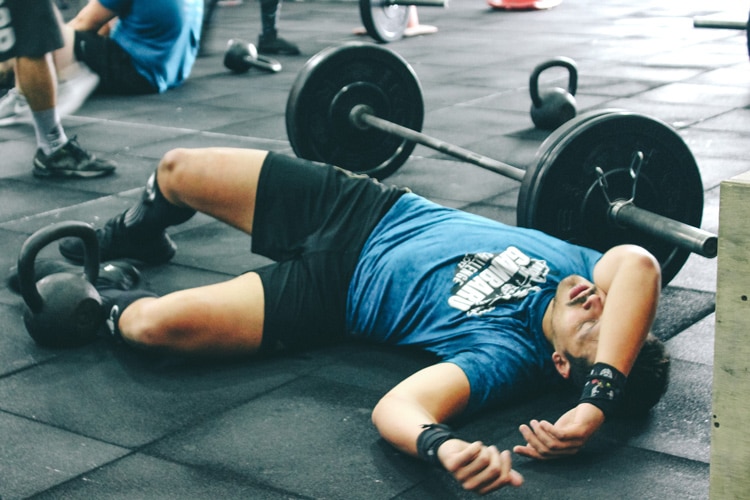
Sleep is critical for muscle repair, recovery, and growth. Your body is at its most anabolic when you’re sleeping. Testosterone and growth hormone levels peak and your body has the time and energy it needs for hypertrophy. So, if you aren’t getting enough sleep, your progress will probably be slower than it could be.
Most people need 7-9 hours of sleep per night, but a lot of us get by on far less. In a lot of cases, this lack of sleep is caused by failing to go to bed early enough. Watching TV, spending time online, or just poor self-discipline can all mean that you end up burning the midnight oil instead of pushing out the Zzzzzzs.
Getting more sleep could be the difference between building muscle and not making any progress at all.
The Fix: Count back 7-9 hours from the time you have to get up – that’s your bedtime. Get into the habit of going to bed earlier to give your body the time it needs to repair and grow.
Related: The Importance of Sleep for Building Muscle and Losing Fat
9. Training without occasional breaks
If you want to build significant amounts of muscle, you need to train consistently. Missed workouts are missed opportunities for muscle growth! That said, you’ll make more progress and avoid plateaus if you take occasional planned breaks from training.

These breaks are called deloads.
Deloads are exactly what they sound like – a short period during which you reduce the intensity, volume, or duration of your workouts. For example, a deload could involve doing no training at all, using less weight, doing fewer sets, or just doing a different type of workout.
The idea of deloading is to give your body some extra time to recover. That way, when you return to training, you are better rested and, therefore, able to work out harder than before.
How often you deload depends on your progress, how you’re feeling, and the program you’re following.
Common deload intervals include:
- 3 weeks on/1-week deload
- Every 6-8 weeks
- Every 10-12 weeks
The Fix: The trick is to deload BEFORE you feel you need to, i.e., before overtraining becomes an issue. So long as you are gaining muscle or increasing your weights from one week to the next, you probably don’t need to deload.
But, if you notice your progress is starting to slow, a deload followed by a new program could be precisely what you need to get back on track.
10. You are ignoring your injuries

Mild aches and pains are a common part of bodybuilding. In fact, they’re all but inevitable as bodybuilding workouts put a lot of stress on your muscles and joints. However, there is a big difference between mild post-exercise muscle soreness and injuries you’re ignoring or hoping will go away on their own.
Training while injured can a) mean your injuries never heal and b) make your workouts less productive. An injury could even become so severe that you’re forced to take an extended break from training, losing a ton of muscle in the process.
For example, if knee pain means you can’t squat as heavy as you’d like, your workout won’t be intense enough to trigger hypertrophy and will also make your joint pain worse. Taking time off to heal is clearly better than being a martyr to your workout.
Bodybuilders are prone to pain in the following joints and body parts:
The Fix: By all means, train around minor aches and pains. But, for anything more serious, make sure you get some professional advice and take time off to heal if necessary. Yes, you will lose a little muscle, but you’ll soon win that back when you return to training. A short break to heal a minor injury is infinitely better than a long break because you are badly hurt.
11. Doing too much cardio

Cardio is critical for your bodybuilding success. It keeps you fit and healthy, speeds up your recovery between workouts, and can help control your body fat levels. That said, you can have too much of a good thing, and doing excessive cardio could undermine your bodybuilding progress.
The aim of bodybuilding training is to trigger hypertrophy. However, doing too much cardio can lead to muscle atrophy. Pairing bodybuilding with excessive cardio sends your body mixed signals, so it doesn’t know whether you want your muscles to grow or get smaller.
So, do enough cardio for your health, but not so much it interferes with muscle building.
The Fix: The key is to use but not abuse cardio. Do just enough to achieve your goals, but not so much that you impede muscle growth. This means 20-30 minutes, 3-5 times a week for most lifters. If you feel like you need to do more for fat loss, you are probably eating too much, and you’ll get better results if you get your diet in order.
12. You’re on a perma-bulk
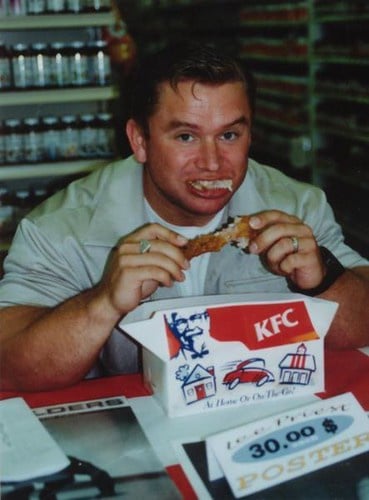
Smart bodybuilders alternate between bulking and cutting. When bulking, they eat more than usual and do their utmost to build muscle. This invariably means increasing body fat levels too.
Then, after a couple of months, they switch to a cutting diet and workout program to shed unwanted fat and reveal their newly-developed muscle mass.
Unfortunately, bulking for too long can lead to big increases in body fat, and the perma-bulking lifter can even become overweight.
Being massively overweight is bad for your health! For example, a fat bodybuilder is as much at risk of heart disease, high blood pressure, metabolic syndrome, and diabetes as a non-exerciser.
The Fix: While it’s okay to bulk and cut, avoid the temptation to bulk all the time. If you are very overweight, it’s time to shed some fat and improve the way you look, as well as your health. Remember, too, that the fatter you are, the longer and harder you’ll need to diet to shed that fat. That’s why short bulk and cut cycles are better than perma-bulking.
Bodybuilding Mistakes Wrapping Up
We all do things wrong from time to time, and making mistakes is part of the human condition. The trick is to learn from those mistakes and avoid repeating them.
If you recognize any of these slip-ups in your own workouts, take action to remedy the problem. Once you’ve made your changes, you will start to get better results from your workouts.
Or, you could just ignore this advice and stay in the rut you’ve dug for yourself – it’s up to you!
One of the best sayings about bodybuilding mistakes is, “when the horse is dead, it doesn’t matter how big a stick you hit it with.”
This somewhat morbid expression means that if you are doing something wrong, continuing to do it won’t change the outcome. Instead, you’ll stay right where you are or even go backward. That’s a tragic waste of your valuable time and energy.
So, start getting the results you want by avoiding these common bodybuilding mistakes!


